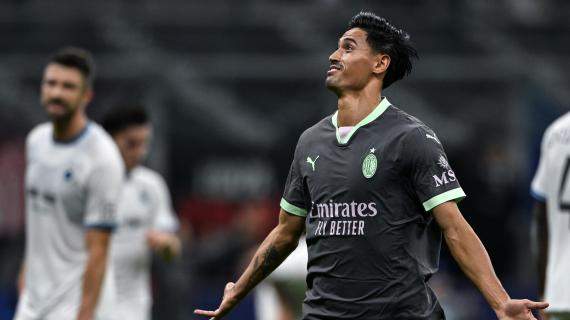First success of the season in the Champions League for Milanwhich chases away the ghosts of the double knockout against Liverpool and Bayer Leverkusen with which he began his adventure in the revised top continental competition. It certainly wasn’t a brilliant performance for the Rossoneri, who however boasted better individual skills than their opponents, who played better but also had to spend a lot to compensate for Onyedika’s red card in the first half.
Pulisic takes his team forward directly from a corner, hitting the center violently in the direction of Gabbia, who however does not touch it. The ball arrives violently towards Mignolet, who is very uncertain and is unable to avoid the Rossoneri’s advantage. Brugge equalized as soon as they returned to the field in the second half thanks to Sabbe, author of a precise right-footed shot that went past an innocent Maignan. Milan took the lead again at San Siro with a burst from Okafor, who replaced an impalpable Leao: the Swiss suddenly accelerated and served in the center for the onrushing Reijnders, who made it 2-1 with the big shot. Fonseca was absolutely decisive, sending not only Okafor but also Chukwueze onto the pitch. The Nigerian gives strength to this theory with the assist of the trio, again from Reijnders, again with a flat shot from the center of the area. There is time for history before the end of the match: Francesco Camarda made his debut in the Champions League at 16 years and 226 days, becoming the youngest Italian ever to punch in the competition. There would even be time for his first goal in the Champions League, but a millimeter offside deprives the very young striker of this joy and Italian football of a historic record.
Fonseca spoke like this at the end of the match, however taking away the credit for the success: “The credit goes to the players and mainly to those who came on, who changed the match, changing our game, the intensity. In the first half we didn’t do well things. We were against a team with eleven very low players, then with an even lower numerical inferiority. And we had difficulties in this type of game, in creating and provoking space. Then, when we don’t find the right solution, the game it starts to be too slow. When we don’t find space, we have to have a different intensity in our actions. We didn’t do well. I think it was a problem of understanding the game.”
